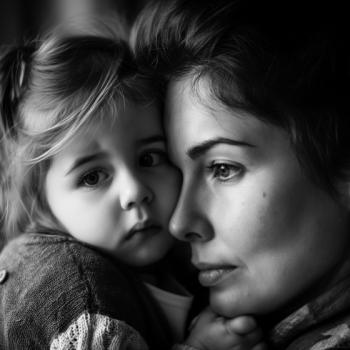Disappointment in the Desert

Laura and I have deemed our deconstruction journey as a journey in the desert. We like the desert metaphor because although it seems barren at times and lonely, it is also full of life and nourishment if you look closely enough. We have met some beautiful friends, helped people in their journey, and evolved as we learned about presence and authenticity.
With most things in life, I think it is helpful to take inventory at occasional waypoints. There are always positive things that thrill us, but parts of the journey are disappointing. These unexpected challenges teach us deeply what is missing from our understanding.
I always try not to use names when I talk about situations. But if I make a reference that you feel might be directed at you, understand that I have no ill will towards you. I am just trying to express helpful lessons that I have learned, and it’s probably someone else anyway. Everyone can be an example or something like that. Most often, I have enough bad examples from own my life.
I don’t see myself as a judge but rather as a reporter trying to reveal what I have experienced.
Disappointment in the Desert
1. Forgetting What is Important
Most of us experience a rush when we embark on this journey of deconstruction. Sometimes, we find immediate relief from our previous situation when we wander out here into the desert. In some ways, it’s like the love-bombing that happens inside organized religion, but in other ways, it is much more personal because there are no organizations to support. No one is required to care about you–and they do anyway!
Most of us previously involved in religious work experienced the transformation and immediately set out to get busy and find our purpose here in the desert. “Wouldn’t it be nice if we could just make a living or at least a side income by helping people?” we ponder. With the popularity of influencers and celebrity ministry workers in the recent past, we assume we need the right marketing edge. Then, we could do something to sustain us and fulfill our perceived need for help.
I see people, including myself, continually reinventing themselves and paying for courses to learn how to best market their group or brand or find the niche market that will lead them to success. I started this journey imagining myself as a coach, then we started a podcast, and I wrote several books and A blog. Although writing and listening to people’s stories and occasionally helping someone was fulfilling and helped me process some of my grief and dysfunction, none of it made much money, and I could see it was pulling me in the wrong direction.
I noticed I was once again becoming loyal to groups instead of my authenticity. I was beginning to experience some of the things I experienced inside of organized religion, and it bothered me greatly. When I spoke up and tried to change the group or the affiliation, expressing my questions and dissatisfaction, the group asserted its right to circle the wagons and distance themselves from me. I admit that I avoided some of the frustration and just left or canceled other relationships.
We decided to do our own thing, our way, finding power not in organizations or alliances but within ourselves.
2. Siding with Power
There has been a move away from evangelicalism for a couple of decades. The default name is deconstruction, but it could probably have several labels that would fit. As I mentioned, many of us find some relief and healing in this journey, but there are also challenges.
One of the biggest challenges is something we inherited in our DNA from previous versions of organized religion. For thousands of years, organized religion has functioned through fear and control. We feel much more comfortable in the group; it gives us power, coordinates our efforts, and occasionally, it feels like family. But there are also many negative aspects to a patriarchal view of power.
Most of us who are deconstructing rail against this practice of fundamental evangelicalism. We fail to see how we are cultivating these same ideas out here in the desert. We form groups, then alliances with groups, and then we do what we have been taught to do–we platform whoever we deem most knowledgeable and/or entertaining!
We are already seeing examples of these new engines of authority and power. Even when they are labeled as inclusive and caring, they ignore and steamroll the abuse survivors they purposed to help. In a way, like someone once said, “power corrupts, and absolute power corrupts absolutely.”
Most of these power structures are still mostly white and mostly men.
3. Lack of Authenticity
The Desert Sanctuary podcast has interviewed almost 300 people over the years. One of the things that stands out is that people enjoy a new feeling of authenticity. They can finally be themselves, even though sometimes, it is a struggle for them to find out who they really are or who they have always been.
But I also notice, sometimes with others and sometimes within myself, that we give in to fear, and instead of being authentic, we are exactly the opposite. I see this in book publishing since everyone, and anyone has a book these days. We long for recognition of our hard work; sometimes, we live and die by those compliments. Maybe that is why I’ve been devastated when someone said my book was the greatest book ever, but then I heard them saying the same thing with the same verbiage to the next person who produced a book.
But being authentic in these areas is tricky. Sometimes, you lose friendships by telling the truth, even if you do it empathetically. To say to someone, “That is just not my kind of book,” or “It didn’t resonate with me,” may disconnect a friendship, but I assume all we had was an artificial one if honesty derailed it.
I try extra hard to help my friends when I can, but I refuse to lie to them.
The recent changes that Laura and I have made have paid dividends to our mental health. All we have to do when we consider our next step is ask the question, “What do you want to do?”
We feel like we are constantly fighting the capitalism and religiosity inherited from our predecessors and our previous way of life. We know there are some benefits to being in a group, but we realize that even as people in religion occasionally do—most often, less is more!
We still feel like we’re on the greatest journey of our lives! We embrace the challenges and the thrills of finding truth and healing. But we also proceed soberly with a present and authentic consciousness. We still write and listen to people’s stories–hopefully more presently and authentically.
BE where you are, be who you are, be at peace!
Karl Forehand
Barbie Gets Revenge on Greg Locke

Karl Forehand is a former pastor, podcaster, and award-winning author. His books include Out into the Desert, Leaning Forward, Apparent Faith: What Fatherhood Taught Me About the Father’s Heart, The Tea Shop and Being: A Journey Toward Presence and Authenticity. He is the creator of The Desert Sanctuary podcast and community. He is married to his wife Laura of 35 years and has one dog named Winston. His three children are grown and are beginning to multiply! You can read more about the author here













